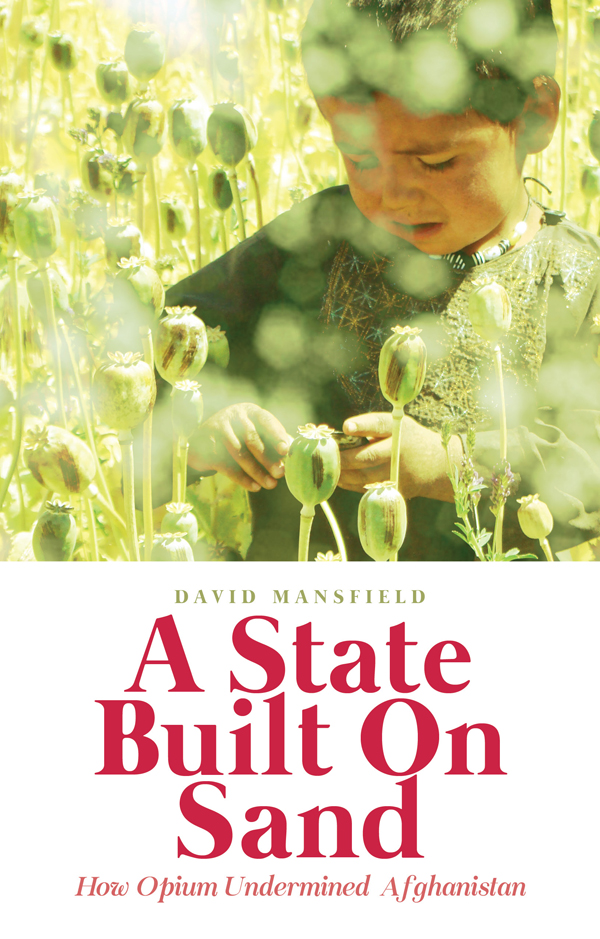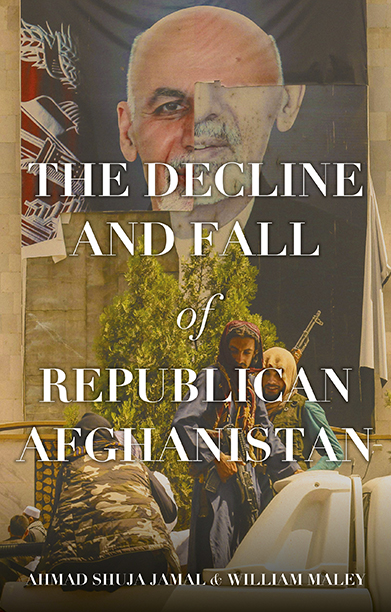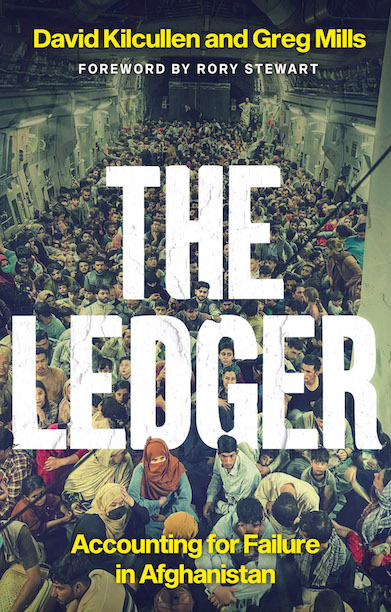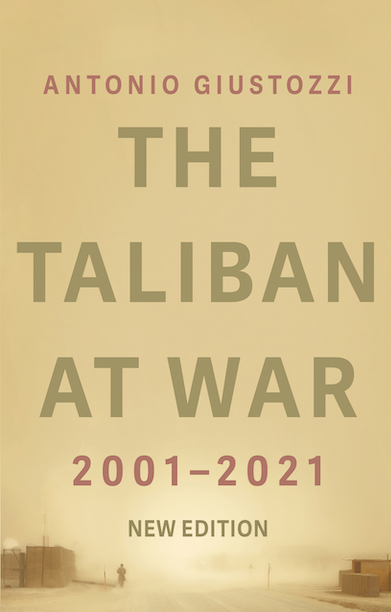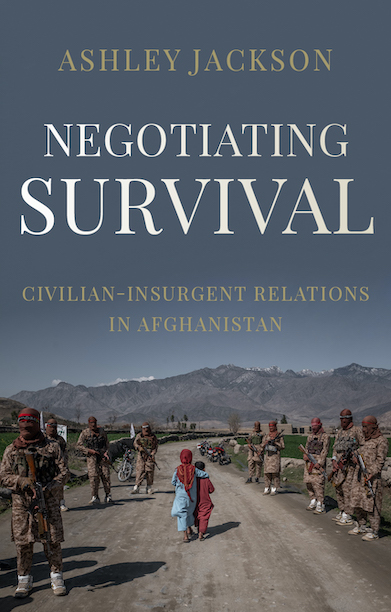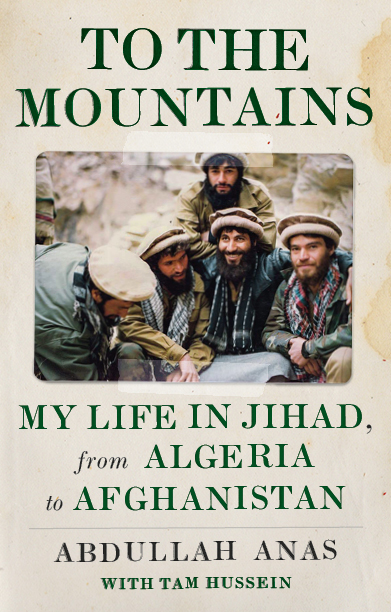A State Built on Sand
How Opium Undermined Afghanistan
Opium cultivation, more than any other single factor, determines people’s lives and political outcomes in rural Afghanistan; this book explains why
Description
Variations in opium poppy production in Afghanistan had long been associated with how the state was perceived at the time of the 2001 invasion. The Taliban, for instance, had imposed a cultivation ban in 2000–01. But the international community’s subsequent attempts to prohibit opium production became intimately linked with its own state- building project, as rising levels of cultivation were seen as evidence of the failure of those international donors who spearheaded reconstruction in provinces like Helmand and Nangarhar.
Mansfield’s book examines why drug control has been imposed in Afghanistan; he documents the actors involved; and he scrutinises how prohibition served divergent and competing interests. Drawing on almost two decades of fieldwork in rural areas, he explains how these bans affected farming communities, and how prohibition endured in some areas while in others opium production bans undermined livelihoods and destabilised the political order, fuelling violence and rural rebellion.
Above all this book challenges how we have come to understand political power in rural
Afghanistan. Mansfield highlights the role that rural communities have played in shaping the political terrain, including establishing the conditions under which they could persist with opium production.
Table of contents
Acknowledgements
Preface
1. Establishing the Context
2. Power, Corruption and Drug Crop Cultivation
3. Rural Livelihoods Perspectives on Drug Crop Production
4. Research Methodology
5. A Historical Overview of Statebuilding and Drug Production in Afghanistan
6. Repositioning a Pariah Regime—The Taliban Ban of 2000/01
7. Nangarhar—A Model Province
8. The Ban Unravels
9. The Helmand Food Zone—A Technocratic Response to a Complex Phenomenon
10. Shifting Political Geography and Patterns of Poppy Cultivation
11. Conclusion
Reviews
‘There is no greater authority on Afghanistan and its illicit opium trafficking than David Mansfield, who has spent two decades in the field — frequently in Taliban controlled areas — where even US and NATO forces feared to tread. In this major new book Mansfield outlines why and how Afghanistan has become the supplier of 90 per cent of the world’s heroin and what impact drug control and opium bans have had on the politics and economy of this devastated country. The book is a must read if we are to get to grips with how to end the cycle of war in Afghanistan that is partly fuelled by opium production.’ — Ahmed Rashid, journalist and author of Pakistan on the Brink: The Future of America, Pakistan, and Afghanistan
‘To understand the fragility of the Afghan state, one must read this thought-provoking and thoroughly researched book. Mansfield portrays an intimate understanding of rural Afghanistan, where he has worked for close to two decades. This new book identifies the factors underlying counternarcotics failures and explains how those failures may have contributed to furthering the conflict. His work is a must-read for policymakers and aid workers interested in Afghanistan and post-conflict reconstruction more broadly.’ — Ahmad Nader Nadery, Director, Afghanistan Research and Evaluation Unit, World Economic Forum
‘A penetrating examination of opium issues in Afghanistan. Mansfield’s use of original research and field work far exceeds any other writer in the field and his conclusions challenge many long held assumptions and conclusions. This is a must-read for anyone who wants to think seriously about drugs and Afghanistan.’ — Ronald E. Neumann, former United States Ambassador to Afghanistan (2005-2007), now president of the American Academy of Diplomacy
‘At last, an analysis based on evidence rather than ideology of the complex interplay between politics and poppy cultivation across Afghanistan, and in Helmand in particular. Mansfield offers a sharp, and sobering, view of the folly of trying to separate the war on drugs from efforts to establish credible government, based on Afghan realities. He shows how opium production is a symptom not a cause of Afghanistan’s continuing problems. Essential reading for all students of the international effort to stabilise Afghanistan.’ — Sir Sherard Cowper-Coles KCMG LVO, UK Ambassador to Afghanistan 2007-9 and UK Special Representative for Afghanistan and Pakistan 2009-10
‘A State Built on Sand is a unique piece of work covering over fifteen years of fieldwork in rural Afghanistan and intimate knowledge of the policy community. As such, it is essential reading for any institutional actor interested in engaging with Afghanistan, drug control and the challenges of state-building interventions. The European Union is proud to have supported some of the pioneering research on the opium-poppy dynamics that continue to threaten the International efforts to stabilize Afghanistan.’ — Ambassador Franz-Michael Skjold Mellbin, EU Special Representative and Head of the EU Delegation to Afghanistan
‘It’s become a truism that opium lies at the heart of the Afghanistan war and that, yes, it’s all very complex. If you want to understand just how complex and why the humble poppy is so important, and you should, this easily read book is a must. With other military entanglements in the offing, David Mansfield effortlessly brings home the importance of properly understanding what one is getting into. For the interested layman or policy maker alike, I cannot recommend A State Built On Sand too highly.’ — General The Lord Richards of Herstmonceux GCB CBE DSO, Commander of the NATO-led security forces in Afghanistan 2006–7, head of the British Armed Forces 2010–13
‘Too few policy analysts and fewer national leaders understand transnational crime, the illegal drugs trade and their threat to rule of law and democratic governance. David Mansfield is a rare exception. Backed by years of fieldwork, I hope A State Built on Sand launches the missing strategic education needed for our time. This book should ignite the debate and study critical to working effectively in the dangerous world of today and tomorrow.’ — John P. Walters, COO, Hudson Institute & Director of Drug Control Policy for President George W. Bush
‘Those who have followed David Mansfield’s remarkable field research on the opium sector of the Afghan economy for the past couple of decades will hardly be surprised to learn that his book, A State Built on Sand, offers unparalleled insight into the production, marketing, and suppression of opium products in Afghanistan. But it does much more than that: Mansfield gives us a unique ground-level view of the struggle over state building in Afghanistan, where farmers and their families are strategic actors, not just the objects of policy.’ — Barnett Rubin, Senior Fellow and Director at the Center on International Cooperation, New York University
Author(s)
David Mansfield is an independent consultant widely regarded as the pre-eminent expert on rural livelihoods and opium poppy cultivation in Afghanistan.
